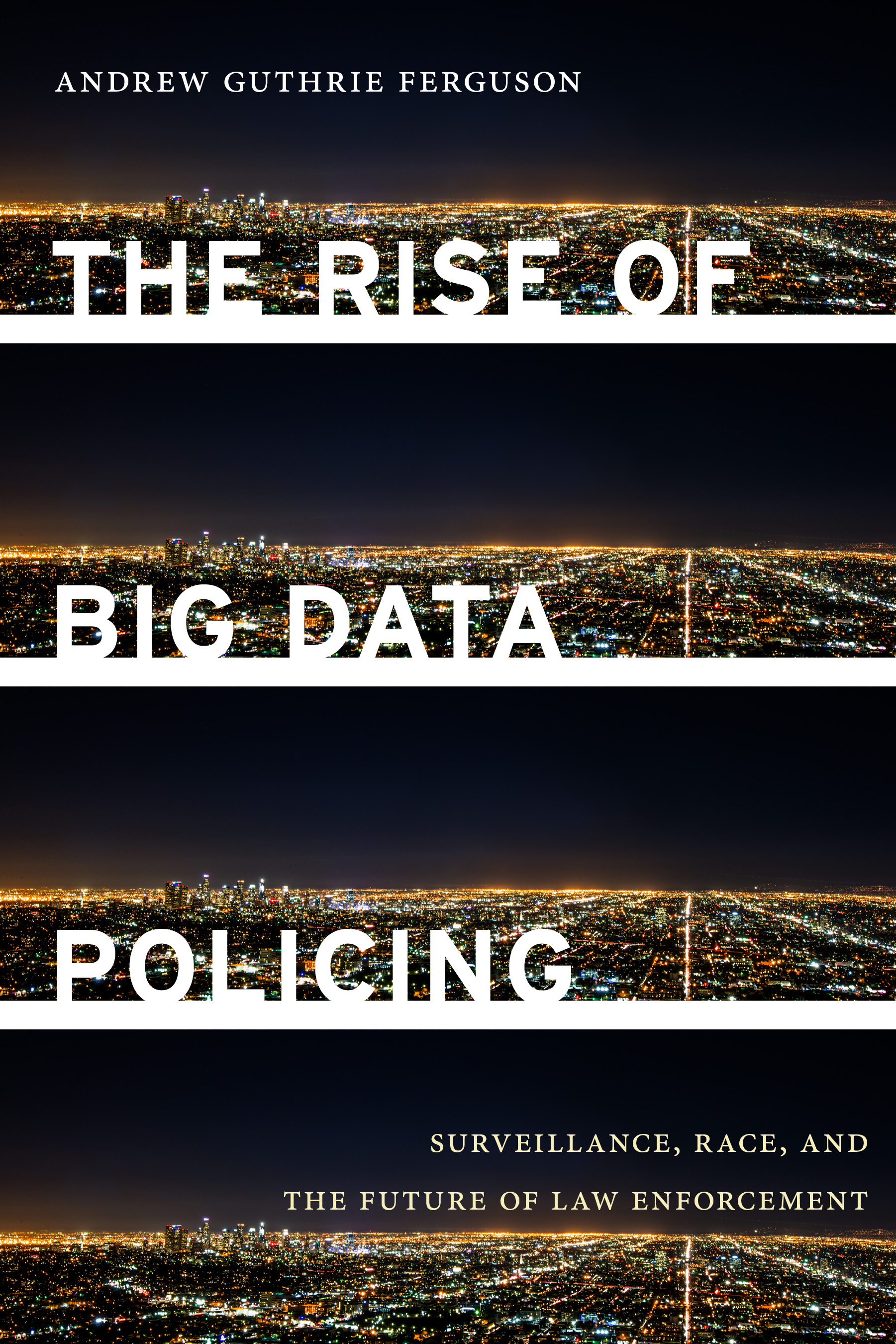BU Cyber Alliance Presents Wed@Hariri Book Talk: “The Rise of Big Data Policing”
3:00 PM – 4:30 PM on Wednesday, October 11, 2017
Refreshments & networking at 2:45 PM
Hariri Institute for Computing
111 Cummington Mall, Room 180
The Rise of Big Data Policing: Surveillance, Race, and the Future of Law Enforcement
Andrew Guthrie Ferguson
UDC, David A. Clarke School of Law
This Wednesday@Hariri event is hosted as part of the Cyber Alliance Speaker Series.

Abstract: Big data technologies are revolutionizing policing. The Rise of Big Data Policing explores how data-driven surveillance technologies impact the “who,” “where”, “when,” and “how” of everyday policing. The book critically examines the future of these digital technologies with particular focus on concerns about racial bias, transparency, and the erosion of constitutional rights. Big data policing has a “black data” problem as the legacy issues of racial discrimination, opacity, and distortions to constitutional protections threaten to undermine the legitimacy of these law enforcement innovations. Written by a law professor and national expert in predictive policing and surveillance, this book seeks to explain how citizens, police administrators, communities, lawyers, technologists, activists, and everyone else should respond to the growth of big data policing. It is the first book to offer a critical examination of the legal impact of these new technologies, as well as a strategy to use the same big data innovations to improve police accountability and remedy the underlying socio-economic risk factors that encourage crime.
 Bio: Professor Ferguson teaches and writes about the intersection of technology and the criminal justice system. His articles include: The “Smart” Fourth Amendment, 102 Cornell L. Rev. 547 (2017); Policing Predictive Policing, 94 Wash. U. L. Rev. 1113 (2017); The Miranda App: Metaphor and Machine, 97 B.U. L. Rev., 935 (2017) (with Richard Leo); The Internet of Things and the Fourth Amendment of Effects, 104 Calif. L. Rev. (2016); Policing Criminal Justice Data, 101 Minn. L. Rev. 711 (with Wayne Logan) (2016); The Big Data Jury, 91 Notre Dame L. Rev. 935 (2016); Big Data and Predictive Reasonable Suspicion, 163 U. Pa. L. Rev. 1137 (2015); Predictive Policing and Reasonable Suspicion, 62 Emory L.J. 259 (2012) and several others.
Bio: Professor Ferguson teaches and writes about the intersection of technology and the criminal justice system. His articles include: The “Smart” Fourth Amendment, 102 Cornell L. Rev. 547 (2017); Policing Predictive Policing, 94 Wash. U. L. Rev. 1113 (2017); The Miranda App: Metaphor and Machine, 97 B.U. L. Rev., 935 (2017) (with Richard Leo); The Internet of Things and the Fourth Amendment of Effects, 104 Calif. L. Rev. (2016); Policing Criminal Justice Data, 101 Minn. L. Rev. 711 (with Wayne Logan) (2016); The Big Data Jury, 91 Notre Dame L. Rev. 935 (2016); Big Data and Predictive Reasonable Suspicion, 163 U. Pa. L. Rev. 1137 (2015); Predictive Policing and Reasonable Suspicion, 62 Emory L.J. 259 (2012) and several others.
Professor Ferguson recently co-authored the law professors’ amicus brief to the Supreme Court on behalf of the Petitioner in Carpenter v. U.S., involving the warrantless collection of cell-site tracking data. His legal commentary has been featured in numerous media outlets, including CNN, NPR, The New York Times, The Economist, the Washington Post, USA Today, the ABA Journal, The Atlantic (digital), The Huffington Post, Rolling Stone, TechCrunch, and other national and international newspapers, magazines, and media sites.
Professor Ferguson has been voted “Professor of the Year” three times. In 2016, he received a University-wide Certificate of Commendation for his teaching and service. Prior to joining the law faculty, Professor Ferguson worked as a supervising attorney at the Public Defender Service for the District of Columbia. He is a graduate of the University of Pennsylvania Law School (summa cum laude) and has a L.L.M. (Masters in Advocacy) from Georgetown Law Center.